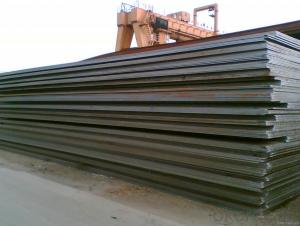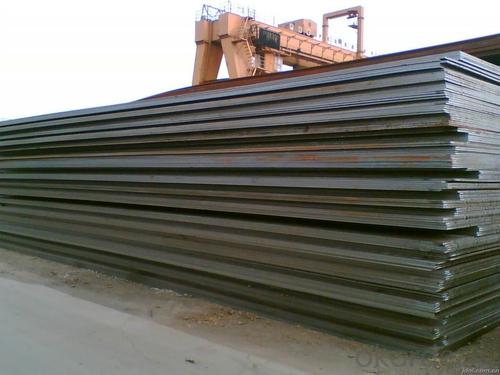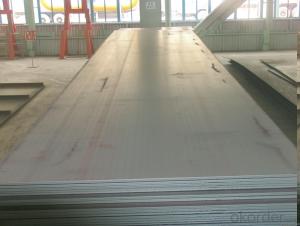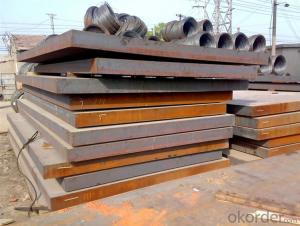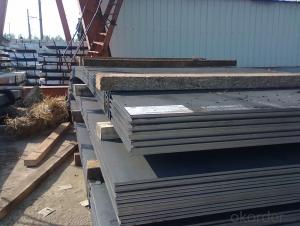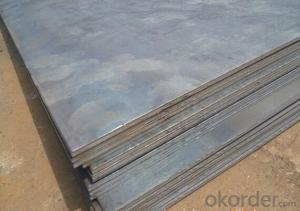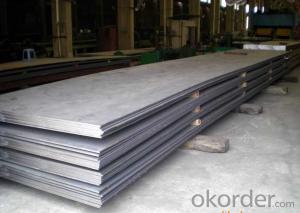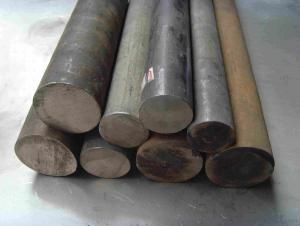Special Steel JIS SKS3 Cold-work Die Alloy Tool Steel Plate
- Loading Port:
- China main port
- Payment Terms:
- TT OR LC
- Min Order Qty:
- 30 m.t.
- Supply Capability:
- 10000 m.t./month
OKorder Service Pledge
OKorder Financial Service
You Might Also Like
Specification
Product information:
Material | Tool and Mould Steel Flat Bar | Dimension | Thickness: 20-400mm, Width: 60-600mm |
Process | EAF + LF + VD + Forged + Heat Treatment (optional) | M.O.Q | 1 Metric Ton |
Heat Treatment | Normalized / Annealed / Quenched / tempered | Trade Term | EXW,FOB,CIF |
Surface Condition | Black coat/milled/turned/peeled | Payment Term | T/T or L/C at sight |
Delivery Condition | Hot forged +Rough machined (black surface after Q/T)+ Turned (optional) | Packing | Seaworthy packing ,wooden case , carton,woven bag or at client's requires |
Test | Ultrasonic test according to SEP 1921-84 D/d | Mills | TISCO, Baosteel, JISCO, HBIS, Xianggang, Daye, etc |
Grade | C | Si | Mn | Cr | Mo | V | W | P | S | Ni |
H13 | 0.32-0.45 | 0.80-1.20 | 0.20-0.50 | 4.75-5.50 | 1.10-1.75 | 0.80-1.20 | - | ≤0.030 | ≤0.030 | - |
D3 | 2.00-2.30 | ≤0.40 | ≤0.40 | 11.5-13.0 | - | - | - | ≤0.030 | ≤0.030 | - |
D5 | 1.45~1.70 | ≤0.40 | ≤0.40 | 11.0-12.50 | 0.40~0.60 | 0.15~0.30 | - | ≤0.030 | - | - |
D2 | 1.40-1.60 | ≤0.60 | ≤0.60 | 11.0-13.0 | 0.7-1.20 | 0.5-1.0 | 0.70-1.20 | ≤0.030 | ≤0.030 | - |
DC53 | 0.9-1.10 | 0.80-1.20 | ≤0.40 | 7.50-8.50 | 1.80-2.20 | - | - | ≤0.03 | ≤0.03 | - |
Product Show:
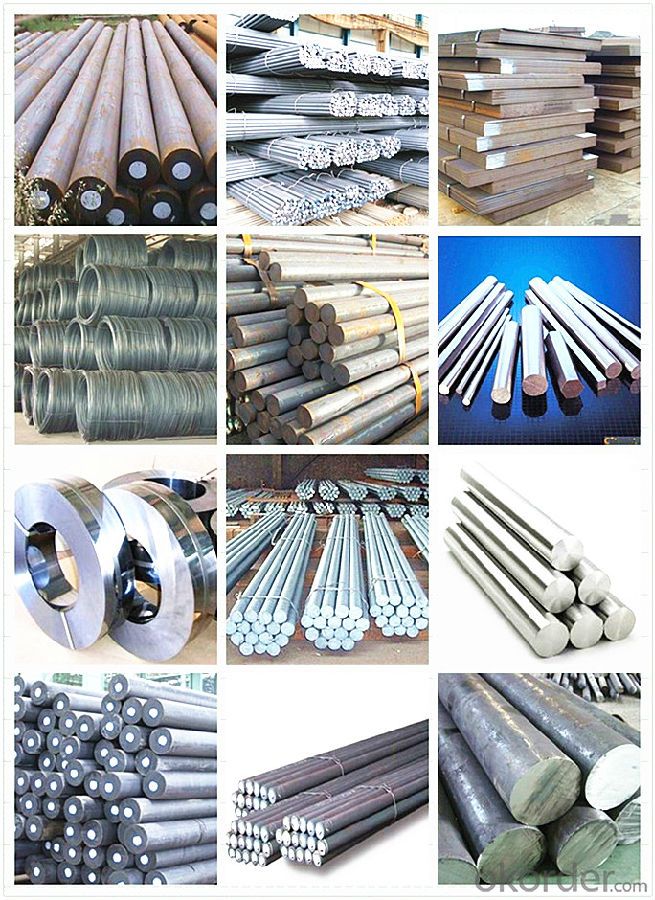
Workshop Show:
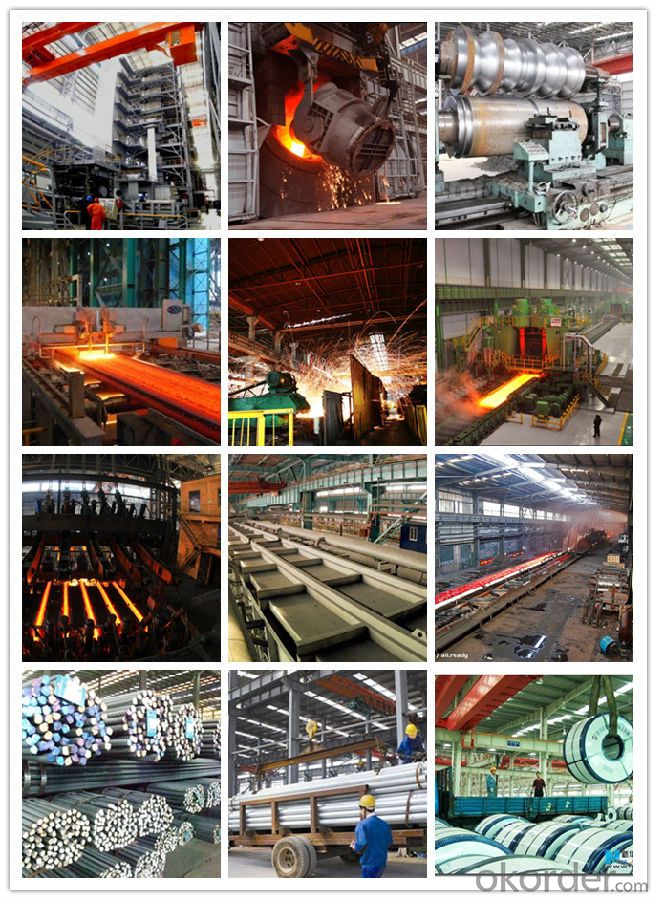
Shipping
1. FedEx/DHL/UPS/TNT for samples, Door-to-Door;
2. By Air or by Sea for batch goods, for FCL; Airport/ Port receiving;
3. Customers specifying freight forwarders or negotiable shipping methods!
Delivery Time: 3-7 days for samples; 5-25 days for batch goods.
Payment Terms
1.Payment: T/T, L/C, Western Union, MoneyGram,PayPal; 30% deposits; 70% balance before delivery.
2.MOQ: 1pcs
3.Warranty : 3 years
4.Package Informations: 1) EXPORT, In 20 feet (GW 25 ton) or 40 feet Container (GW 25 ton)
2)as customer's requirement
Why choose us?
(1) The leading exporter in China special steel industry.
(2) Large stocks for various sizes, fast delivery date.
(3) Good business relationship with China famous factories.
(4) More than 7 years steel exporting experience.
(5) Good after-sales service guarantee.
- Q: What are the specific requirements for special steel used in the nuclear fuel industry?
- The nuclear fuel industry imposes stringent and demanding requirements on special steel. These requirements are crucial to guarantee the safety and reliability of nuclear power plants. Here are some of the key specifications for special steel used in this sector: 1. Withstanding high temperatures: The special steel employed in the nuclear fuel industry must have the ability to endure high temperatures without compromising its structural integrity. This is of utmost importance as nuclear reactors generate intense heat during their operation. 2. Resisting corrosion: The nuclear fuel environments can be highly corrosive due to the presence of hot and pressurized water, radiation, and chemical reactions. Special steel used in this industry must exhibit exceptional resistance to corrosion in order to prevent deterioration and maintain safety. 3. Resisting radiation: The nuclear fuel industry involves exposure to radiation. Special steel must possess outstanding resistance to radiation damage and embrittlement in order to ensure long-term structural integrity and avoid any risk of failure. 4. High strength and toughness: Special steel used in the nuclear fuel industry should possess high strength and toughness to withstand the extreme conditions experienced within a nuclear reactor. This guarantees that the steel can endure the pressure and stress exerted on it during reactor operation. 5. Low neutron absorption: Neutron absorption is a critical factor in nuclear reactors. Special steel used in this industry should exhibit low neutron absorption properties to prevent interference with nuclear reactions and maintain reactor efficiency. 6. Stringent quality control and traceability: The manufacturing and fabrication of special steel for the nuclear fuel industry must conform to strict quality control procedures to ensure consistency and reliability. Traceability is also pivotal in identifying the origin and history of the steel, enabling comprehensive inspections and assessments. Meeting these specific requirements is crucial for the safe and efficient operation of nuclear power plants. Special steel used in the nuclear fuel industry must undergo rigorous testing, certification, and quality control processes to ensure compliance with these stringent specifications.
- Q: How does special steel contribute to the agriculture industry?
- Special steel contributes to the agriculture industry by providing durable and high-performance materials for various agricultural machinery and equipment. It is used in the manufacturing of tractor parts, plows, harvesters, and other farm implements. The strength and resistance to wear and tear of special steel enhance the efficiency and longevity of these tools, ultimately improving productivity and yield in the agriculture sector.
- Q: What are the different high-temperature grades of special steel?
- There are several different high-temperature grades of special steel that are designed to withstand extreme heat and provide enhanced mechanical properties. Some of the most commonly used high-temperature grades include: 1. Stainless steel 310: This grade is known for its excellent resistance to oxidation at high temperatures. It has a high chromium and nickel content, which provides good corrosion resistance and high strength at elevated temperatures. 2. Inconel 625: Inconel alloys are nickel-based superalloys that are highly resistant to oxidation and corrosion. Inconel 625, in particular, offers excellent strength and toughness at high temperatures, making it suitable for applications in the aerospace and chemical processing industries. 3. Hastelloy X: Hastelloy X is a nickel-chromium-iron-molybdenum alloy that exhibits exceptional strength and oxidation resistance at high temperatures. It is commonly used in gas turbine engines, industrial furnace components, and other high-temperature applications. 4. Alloy 800H: This grade of special steel is an austenitic alloy with high resistance to oxidation, carburization, and nitridation. It is often used in heat exchangers, furnace components, and petrochemical applications. 5. Titanium Grade 5: Although not technically a steel, titanium grade 5 is a high-temperature alloy that offers outstanding strength and corrosion resistance at elevated temperatures. It is commonly used in aircraft engine components, chemical processing equipment, and marine applications. These are just a few examples of the high-temperature grades of special steel available in the market. Each grade is specifically designed to excel in different applications where extreme heat resistance and mechanical properties are required.
- Q: What are the heat treatment processes used for special steel?
- There are several heat treatment processes used for special steel, including annealing, normalizing, quenching, tempering, and precipitation hardening. These processes are designed to enhance the strength, hardness, toughness, and ductility of the steel, depending on the specific requirements of the application.
- Q: What are the different forming techniques for special steel?
- Some of the different forming techniques for special steel include hot forging, cold forging, extrusion, rolling, and casting. These techniques allow for the shaping and manipulation of the steel to meet specific requirements, such as strength, durability, and dimensional accuracy. Each technique has its own advantages and can be chosen based on the desired outcome and the characteristics of the special steel being used.
- Q: How is alloy steel used in the production of gears and shafts?
- Alloy steel is used in the production of gears and shafts due to its high strength and durability. By adding different alloying elements such as chromium, nickel, and molybdenum, the steel's properties can be enhanced to withstand heavy loads, high temperatures, and wear. This makes alloy steel ideal for manufacturing gears and shafts that need to transmit power, resist deformation, and maintain their integrity under demanding conditions.
- Q: What are the applications of special steel in aerospace engineering?
- The aerospace industry heavily relies on special steels for their distinct characteristics and capabilities. These steels are specifically crafted to meet the demanding needs of aerospace engineering, where utmost importance is placed on strength, resistance to corrosion, and tolerance to extreme temperatures. Here are some notable applications of special steel in aerospace engineering: 1. Aircraft engine components: Stainless steels and other special steels are extensively used in the production of aircraft engine components. These steels offer unparalleled strength, resistance to corrosion, and durability at high temperatures, making them perfect for critical parts like turbine blades, compressor discs, and shafts. 2. Landing gear systems: The landing gear of an aircraft undergoes significant stress and impact during takeoff, landing, and taxiing. To withstand these forces, special steels with remarkable strength, toughness, and resistance to fatigue are utilized in the manufacturing of landing gear components such as struts, axles, and shock absorbers. 3. Structural components: Aerospace structures must endure dynamic loads, vibrations, and extreme environmental conditions. Various structural components like wings, fuselage frames, and support structures employ special steels, particularly high-strength low-alloy (HSLA) steels. These steels offer exceptional strength-to-weight ratios, ensuring structural integrity while minimizing weight. 4. Fasteners: Special steel fasteners, including bolts, screws, and rivets, play a crucial role in joining different components in aerospace applications. These fasteners are typically made from high-strength steels, providing exceptional tensile and shear strength, as well as resistance to corrosion, to ensure secure and reliable connections. 5. Fuel system components: Special steels with high resistance to corrosion, such as stainless steels, are utilized in the construction of fuel system components like tanks, pipes, and valves. These steels prevent fuel leakage and maintain the system's integrity, even in harsh environments. 6. Electrical connectors: Aerospace electrical systems necessitate reliable and efficient electrical connectors. Special steels, often possessing high electrical conductivity and resistance to corrosion, are employed in the manufacturing of connectors, guaranteeing optimal performance and longevity. In conclusion, the outstanding properties of special steels make them indispensable in aerospace engineering. Whether it is for critical engine components, landing gear systems, structural applications, fasteners, fuel systems, or electrical connectors, these steels provide the necessary strength, resistance to corrosion, and stability in extreme temperatures, ensuring safe and efficient aircraft operation.
- Q: Can special steel be used in the production of fasteners?
- Yes, special steel can be used in the production of fasteners. Special steel, such as alloy steel or stainless steel, offers enhanced strength, corrosion resistance, and durability, making it suitable for various fastening applications. Its unique properties ensure reliable and long-lasting connections in industries like automotive, construction, and aerospace.
- Q: What are the cutting tools used for machining special steel?
- The cutting tools commonly used for machining special steel include carbide inserts, high-speed steel (HSS) drills and end mills, ceramic inserts, and diamond-coated tools. These tools are designed to withstand the high temperatures and hardness of special steel, ensuring precise and efficient cutting.
- Q: How does special steel contribute to improving product performance in corrosive environments?
- Special steel contributes to improving product performance in corrosive environments due to its unique properties and composition. Special steel is specifically designed to resist corrosion and maintain its structural integrity even when exposed to harsh conditions. It contains elements like chromium, nickel, and molybdenum that form a protective layer on the surface, preventing the metal from reacting with corrosive substances. This enhanced corrosion resistance ensures that products made from special steel have a longer lifespan, reduced maintenance requirements, and improved performance in corrosive environments.
Send your message to us
Special Steel JIS SKS3 Cold-work Die Alloy Tool Steel Plate
- Loading Port:
- China main port
- Payment Terms:
- TT OR LC
- Min Order Qty:
- 30 m.t.
- Supply Capability:
- 10000 m.t./month
OKorder Service Pledge
OKorder Financial Service
Similar products
Hot products
Hot Searches
Related keywords
